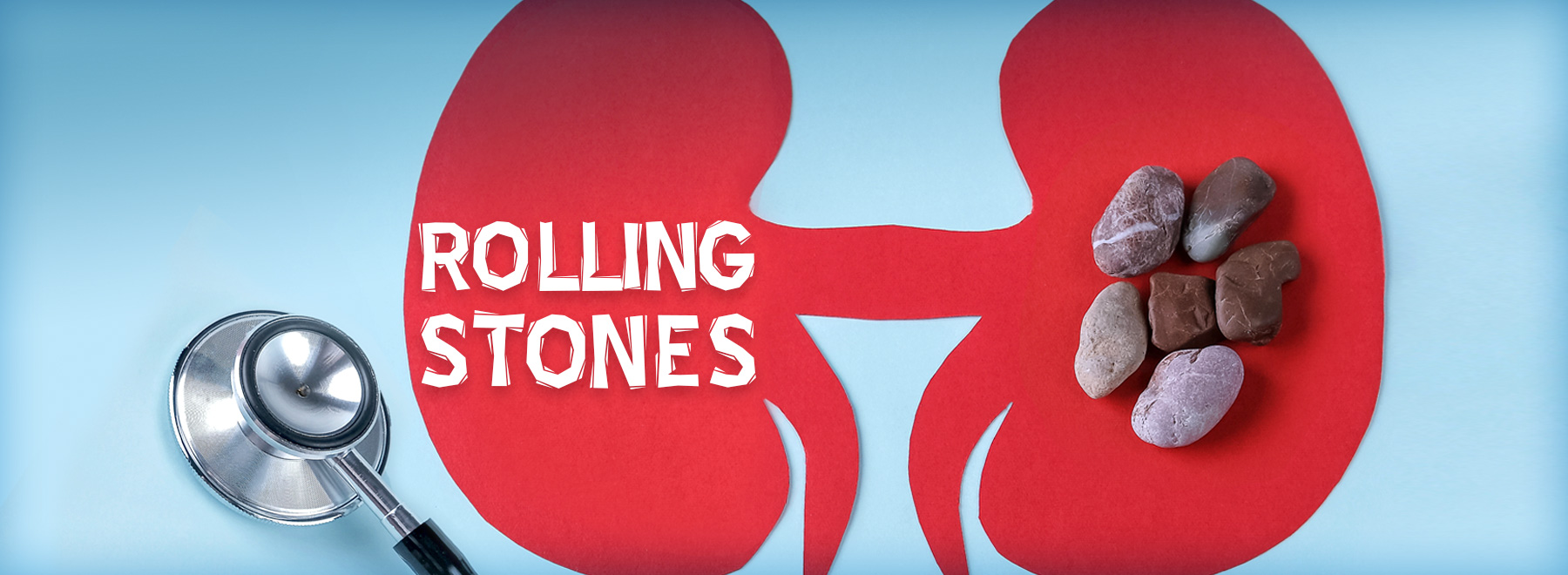Kidney stone cases on the rise for children, UMMC experts say
Blood in urine is one of the symptoms of a kidney stone, but it may not be the first to come to mind.

“Kidney stones are known for being extremely painful,” said Dr. Mark Barraza, James E. Keeton, MD Chair of Pediatric Urology at the University of Mississippi Medical Center and a Children’s of Mississippi urologist. “No one wants to go through having a kidney stone, and you certainly don’t want your child to have one.”
Unfortunately, kidney stones are on the rise among children.
According to a study published in the Clinical Journal of the American Society of Nephrology, kidney stone diagnoses among children doubled between 1997 and 2012. The greatest increase at 15 percent, was among 15- to 19-year-olds, and females saw a 15 percent increase in the condition, which is more often found in middle-aged men.
“At Children’s of Mississippi, we see a tremendous number of children and adolescents with kidney stones,” Barraza said.
The culprit for the increase, Barraza said, is often diet and hot weather.
“High levels of salt, being in the heat and drinking a large amount of tea can all contribute to kidney stones,” he said. “They can cause relative dehydration.”
Formed from mineral and salt deposits in the kidneys, kidney stones send about 500,000 Americans to hospital emergency departments each year, according to the National Kidney Foundation. About 10 percent of Americans, adults as well as children, have had at least one kidney stone.
Some kidney stones are the size of a grain of sand, while others can be much larger, blocking the flow of urine and causing significant pain.
In addition to intense pain, kidney stones can also cause frequent, painful urination, nausea and vomiting, bloody or cloudy urine and urinary tract infections.
The good news is that kidney stones rarely result in lasting damage to the kidneys.
Though there are conditions such as cystic fibrosis, chronic bowel inflammation, cystic kidney diseases and gout that make kidney stones more likely for some children, the risk of kidney stones can be lessened through good dietary choices, Barraza said.
"Avoiding processed foods that are high in salt and drinking plenty of water will help anyone avoid kidney stones,” Barraza said.
Iced tea, sweetened or not, can be a bad choice for hydration when it comes to avoiding kidney stones since tea contains oxalates that can combine with calcium to form calcium oxalate kidney stones, the most common type.
Sports drinks have sodium, which can be a problem when they’re consumed either by someone who hasn’t been playing sports or working outdoors. For those who do need to replace fluids after a workout, water is best.
Lemonade is also a good beverage choice for dodging kidney stones, Barraza said. The citrate from the lemons or the potassium citrate in sugar-free lemonade mixes reduces the risk of developing kidney stones.
U.S. children consume about 3,300 milligrams of salt a day, surpassing the 2,300 milligrams or less recommended by the U.S. Department of Agriculture.
Processed foods are also linked to poor learning, obesity and high blood pressure.
The U.S. Food and Drug Administration recommends holding talk to no more than a teaspoon a day.
Staying hydrated and eating less junk food can be good advice for adults, too, said Paul Robertson, bariatric lifestyle/nutrition coordinator at UMMC and a registered dietitian.
“Getting in the habit of sipping water throughout the day is best,” he said. “Pace yourself by following your thirst cues and drinking before, during and after sports or working outside.”
Avoiding all processed foods is unrealistic, he said, “but it’s good to limit those foods.”
Families should make most of their meals from the outer edges of the supermarket, he said. “That’s where the fresh fruits and vegetables, fresh, lean meats, dairy products and whole grains are.”
The above article appears in CONSULT, UMMC’s monthly e-newsletter sharing news about cutting-edge clinical and health science education advances and innovative biomedical research at the Medical Center and giving you tips and suggestions on how you and the people you love can live a healthier life. Click here and enter your email address to receive CONSULT free of charge. You may cancel at any time.



